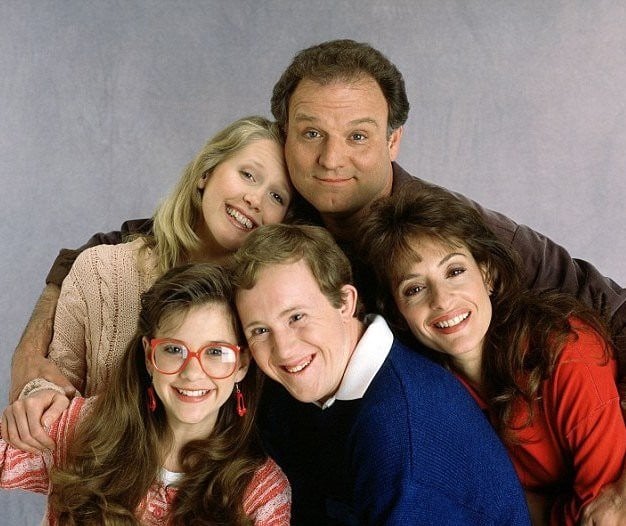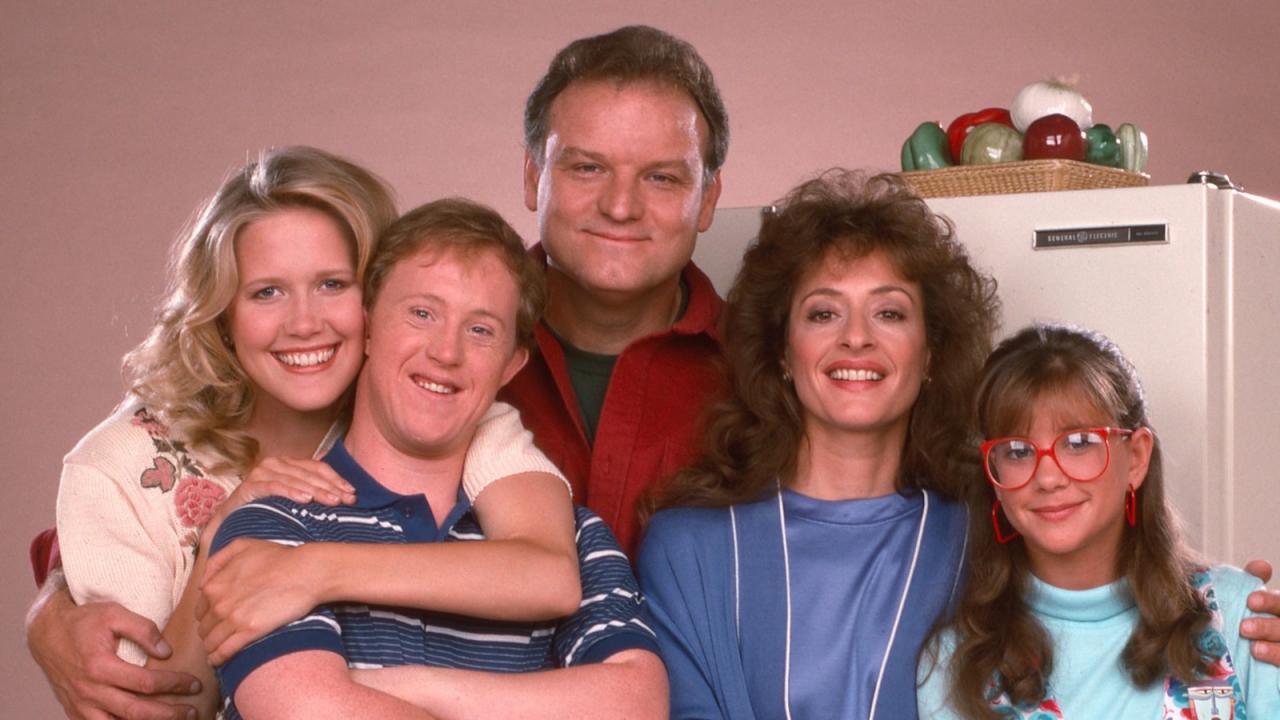Could a television show, airing in the late 1980s and early 1990s, truly reshape societal perceptions of disability? "Life Goes On," which debuted on ABC, not only entertained but also courageously broke ground by featuring a main character with Down syndrome, sparking crucial conversations and leaving an enduring legacy.
The series, which graced television screens from September 12, 1989, to May 23, 1993, offered a poignant glimpse into the lives of the Thatcher family, residing in suburban Chicago. At the heart of the narrative was Charles "Corky" Thatcher, played by actor Chris Burke, a young man navigating the complexities of adolescence and adulthood while living with Down syndrome. "Life Goes On" boldly chose to portray a character with a developmental disability in a central role, a move that was both unprecedented and transformative for the medium of television. The show's creators understood the power of representation, and by centering a story around Corky, they opened a window into a world often overlooked or misunderstood.
The shows narrative resonated with audiences on multiple levels. It wasn't just about Corky's experiences; it was a family drama, exploring the universal themes of love, loss, triumph, and the everyday struggles that families face. Drew Thatcher, the father, and Elizabeth Thatcher, the mother, grappled with typical parental challenges while also providing support for their son, Corky. The other children, Paige and Rebecca, experienced the joys and frustrations of sibling relationships, all while learning valuable lessons about acceptance, understanding, and the importance of family. The show was not just about disability; it was about the human experience, and how we all navigate lifes journey.
The series was revolutionary, but the story was not only about Corky; it was about the whole family. The writers of the show explored universal issues. The challenges faced by the Thatchers, Drew and Elizabeth, were the challenges faced by many American families, and the struggles of the children with their parents, and with themselves were shared by many of the audience members. The writers, however, understood that the inclusion of a main character with Down syndrome, they had to weave the fabric of the story around that element.
The impact of "Life Goes On" transcended mere entertainment. By presenting a character with Down syndrome in a positive and multifaceted light, the show challenged stereotypes and misconceptions. It helped to normalize the presence of individuals with disabilities in mainstream society, fostering greater empathy and understanding. The show didn't shy away from the realities of living with a disability. Corky faced the same challenges as his peers; he struggled in school, dealt with romantic relationships, and yearned for independence. However, the show also showcased his strengths, his resilience, his humor, and his capacity for love and connection. It was through Corky, that the audience learned a valuable lesson: that individuals with disabilities are not defined by their condition but by their character and their humanity.
The shows influence extended beyond the realm of television. It sparked conversations about inclusivity and accessibility, encouraging viewers to re-evaluate their own biases and prejudices. The show was a mirror, reflecting the diversity of the human experience and urging viewers to see beyond superficial differences. Because of the popularity of the show, educators, activists, and disability rights advocates, all cited the show as a positive influence in their lives, and work.
The show was a reflection of the societal changes that were happening at the time. The civil rights movement had paved the way for greater awareness of the rights of marginalized groups, and the disability rights movement was gaining momentum. "Life Goes On" tapped into this growing consciousness, presenting a narrative that reflected the changing attitudes toward disability. The show was also ahead of its time in its exploration of social issues. Through Corkys experiences, the show touched on themes of self-esteem, bullying, discrimination, and the importance of advocating for oneself. These were not easy topics to discuss, but the writers and producers of Life Goes On had the guts to face them head on, and explore their many nuances.
Chris Burke, the actor who embodied Corky Thatcher, played a pivotal role in the show's success. Burke, who himself has Down syndrome, brought authenticity and heart to the character. His portrayal of Corky was not a caricature, but a nuanced and deeply human performance. His dedication to the role and his ability to connect with audiences, won him the admiration of critics and fans alike. He became a symbol of the shows mission, and the show would not have worked had Burke not been the actor cast in the role. He understood the importance of the show's message. Chris Burkes performance, and the entire cast, were committed to making sure the message came through loud and clear.
Burke wasnt alone in making the show such a success. The supporting cast, including Bill Smitrovich as Drew Thatcher, Patti LuPone as Elizabeth Thatcher, Kellie Martin as Rebecca, and Monique Lanier as Paige, delivered outstanding performances, creating a fully formed and dynamic family. Their portrayals of the Thatcher family felt authentic and relatable. Audiences were able to see their own families reflected in the characters and were able to see the love and warmth that emanated from them. The show highlighted the importance of familial support and the challenges and triumphs that families experience. The actors were able to create a sense of warmth, and the message they were giving was one of hope.
The show was also notable for its exploration of the challenges and triumphs of inclusion. Corky's experiences of going to mainstream school, and his efforts to establish friendships and romantic relationships, were all carefully handled. Through Corkys journey, the show explored the value of diversity, and the importance of challenging social barriers. The struggles and successes of Corky provided the audience with the valuable opportunity to learn about acceptance, tolerance, and understanding.
The show did not shy away from the real issues that people with Down syndrome faced. They had a major character with Down syndrome, but he also struggled in school, dealt with bullying, and sought to establish meaningful relationships with others. Corky's struggles were very human, and his hopes and dreams mirrored those of many other teenagers at the time. But the show was careful to strike a balance between portraying the difficulties, and illustrating the many opportunities that people with Down syndrome had available.
One of the memorable storylines involved Corky's attempt to mainstream into the 9th grade, coinciding with his sister Becca's educational journey. The show also touched on his desires to experience romance, particularly his hopes of being the king at the homecoming dance. The show never shied away from the real issues, and used these opportunities to illustrate the importance of acceptance, and the many challenges and the many triumphs faced by people with disabilities.
Beyond the storylines, "Life Goes On" also offered valuable life lessons. It emphasized the importance of empathy, the power of communication, and the need to celebrate individual differences. The show was a masterclass in how to engage with complex issues, and encourage the viewers to think deeply about their own attitudes and beliefs. "Life Goes On" has a rich legacy that extends beyond the screen, it has become a testament to the power of storytelling.
The show's relevance and resonance continue to this day. It paved the way for greater representation of individuals with disabilities in media, and inspired other shows to follow suit. While the show itself is no longer on the air, its impact can still be felt. Chris Burke has remained a prominent advocate for disability rights, using his platform to educate and inspire others. Chris's work has had a major impact on attitudes towards people with Down syndrome, and continues to this day.
The show was ground-breaking in its approach, featuring a main character with Down syndrome. The show was a cultural phenomenon that captured the hearts and minds of millions of people, and left an indelible mark on television history. With its commitment to inclusivity, its honest portrayal of disability, and its exploration of universal themes, "Life Goes On" remains a powerful example of the transformative potential of storytelling.
The show's pioneering spirit remains relevant today. In a world thats increasingly focused on representation and inclusion, "Life Goes On" serves as a reminder of the importance of seeing the world through different perspectives. It encourages viewers to challenge their own biases, embrace diversity, and celebrate the unique contributions of every individual.
The show's legacy is an important one, and offers the reminder that stories can change hearts and minds. As a whole, "Life Goes On" demonstrates the power of television to not only entertain, but also to educate, and to empower.
| Attribute | Details |
|---|---|
| Full Name | Charles "Corky" Thatcher |
| Born | In the television show. |
| Played by | Chris Burke |
| Show | Life Goes On |
| Down Syndrome portrayal | The first series to feature a main character with Down Syndrome |
| Character Traits | Kind, Intelligent, Determined, and loving. |
| Relationship to Family | Son and Brother |
| Career | Studied at a Specialized School. |
| Notable story arcs | Maintreaming into 9th grade, desire for romance, homecoming dance |
| Other shows that Chris Burke Appeared | Touched by an angel. |
| Other shows that Chris Burke Appeared | Promised Land, Er, The Division |
| Reference Website | IMDB - Life Goes On |
The success of "Life Goes On" also led to opportunities for other shows. The show demonstrated that audiences were ready for different stories, and that the idea of a main character with a disability did not have to mean the end of success. It was the beginning of the modern era of inclusiveness in TV.
The show was filmed primarily in the Chicagoland area, a major center of film production. The Thatchers house was located on a suburban street, making it relatable for many viewers. The settings of the show allowed the audience to feel a connection to the characters, and also made the show feel familiar to many.
Drew Thatcher, played by Bill Smitrovich, struggles with typical family issues, as well as helping their first son, corky (chris burke) to cope with everyday issues. The shows depiction of the Thatcher family, was instrumental in its success. The family, as a whole, had the goal of making sure that Corky lived a full life, and had the tools to succeed. While the struggles of the Thatchers are not unique, the show highlighted them in a unique way. And because of that it made the show a success.
The show also offered valuable life lessons. It emphasized the importance of empathy, the power of communication, and the need to celebrate individual differences. The show was a masterclass in how to engage with complex issues, and encourage the viewers to think deeply about their own attitudes and beliefs. "Life Goes On" has a rich legacy that extends beyond the screen, it has become a testament to the power of storytelling.
- Discovering Tyler Sweet From Helix To Headlines Beyond
- Tristan Summers Age Wiki Career More Your Complete Guide


